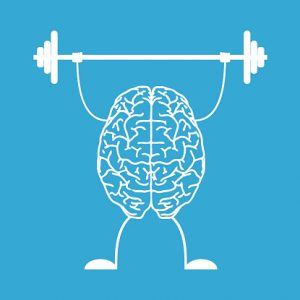
While overall intelligence may not be improved, the researchers advocate that improvements in skills people need to excel at school and work will improve.
“People say cognitive training either works or doesn’t work. We showed that it matters what kind of training you’re doing. This one task seems to show the most consistent results and the most impact on performance and should be the one we focus on if we’re interested in improving cognition through training,” said lead author Kara J. Blacker, a former Johns Hopkins post-doctoral fellow in psychological and brain sciences.
Not all brain training exercises made equal
Many scientists have attempted to use brain training exercises to improve cognitive performance with mixed results. This new team suspects that brain training isn’t necessarily flawed, but the type of exercises done are not optimal.
To investigate this claim, the researchers directly compared the leading types of exercise and measured peoples brain activity before and after.
Three groups of participants, all young adults, took part in a battery of cognitive tests to determine baseline working memory, attention, and intelligence. Each person also underwent an electroencephalogram (EEG) to measure brain activity.
Everyone was then sent home to practice computer tasks for 30 minutes a day for five days. One group used a leading brain exercise, the second group used another, and the last group practiced on a control task. The brain training programs used were not commercially available products, but rather, tools scientists rely on to test the brain’s working memory.
Once the initial trial period had completed, participants returned to the lab to see if anything about their brain or cognitive ability had changed.
Noteworthy results found for a particular type of brain exercise
The researchers found that the first group who practiced what’s known as a “dual n-back” exercise showed a 30 percent improvement in working memory. This was seen to be almost double the gains of the second group who performed a task known as “complex span.” The first group also showed significant changes in brain activity in the prefrontal cortex, a critical region responsible for higher learning.
The “dual n-back” is a memory sequence test that asks people to remember a constantly updating sequence of visual and auditory stimuli. Participants saw flashing squares on a grid while hearing letters. They were tasked to remember if the squares they see and the letters they hear were both the same as the previous round. This task became progressively harder as it went on. The researchers mentioned this game was akin to the game Simon, but instead of recalling sounds and color, subjects had to remember the current sequence and the one previous.
The “complex span” exercise only involved remembering items in a sequence, but there is a distraction in between items. Continually updating items in people’s minds was not part of this test.
“The findings suggest that this particular task is changing something about the brain. There’s something about sequencing and updating that really taps into the things that only the pre-frontal cortex can do, the real-world problem-solving tasks,” said says co-author Susan Courtney, a Johns Hopkins neuroscientist and professor of psychological and brain sciences.
Working memory is what people rely on to temporarily hold details, such as remembering phone numbers or directions, which is a vital skill to have at school and work. The researchers feel that targeted interventions and intensive training strengthens cognition and the brain, and using proven brain exercises is crucial.
[adstoappear]